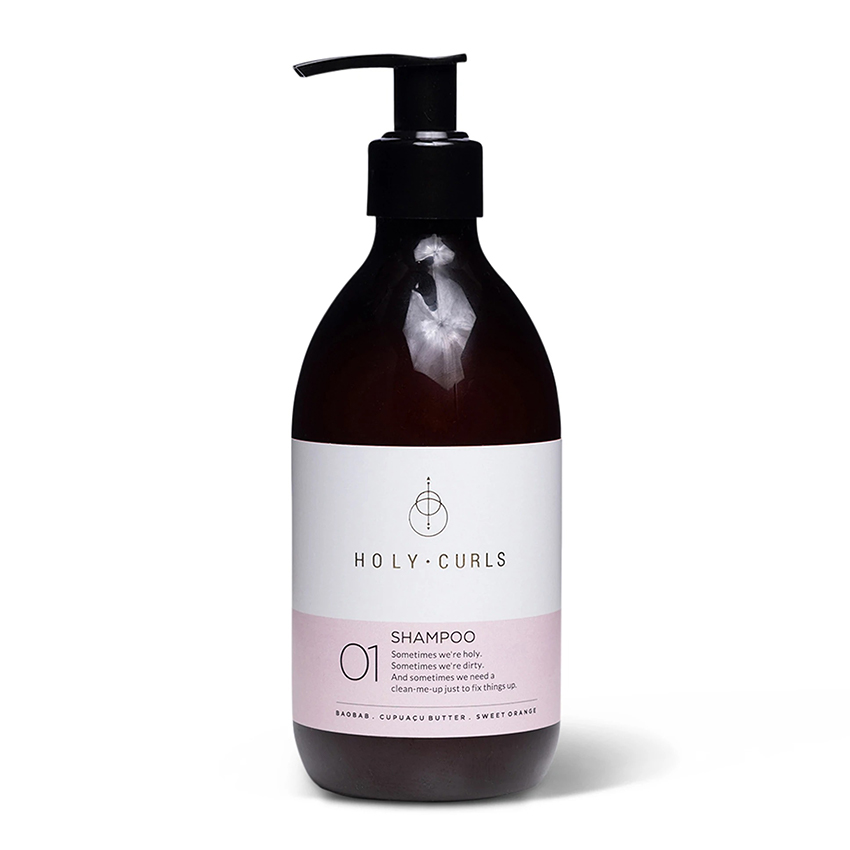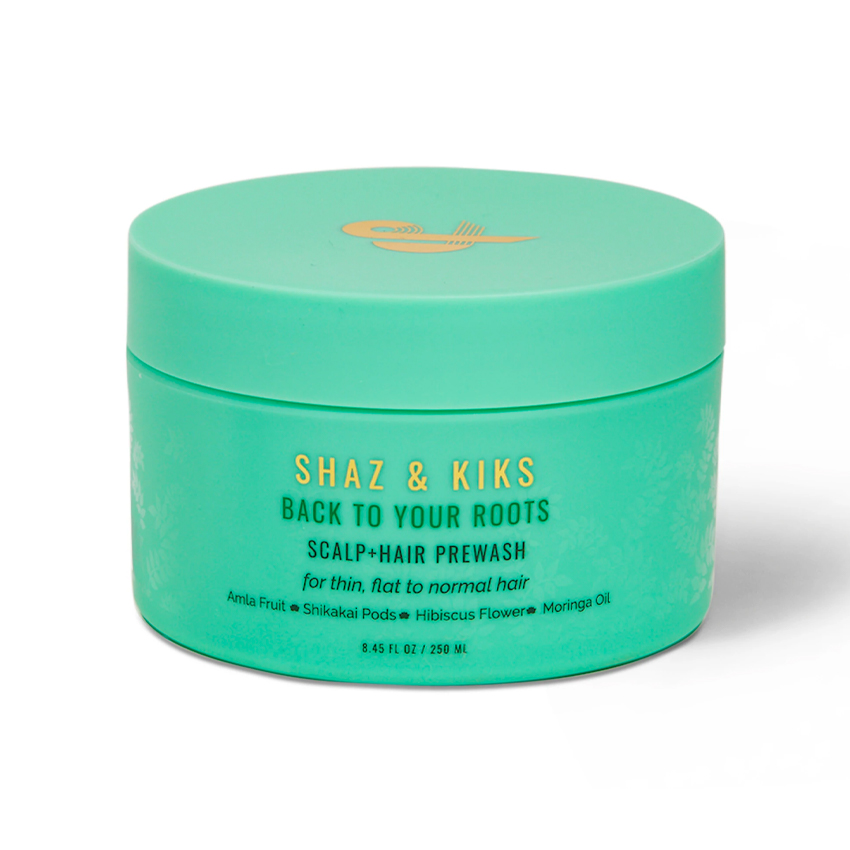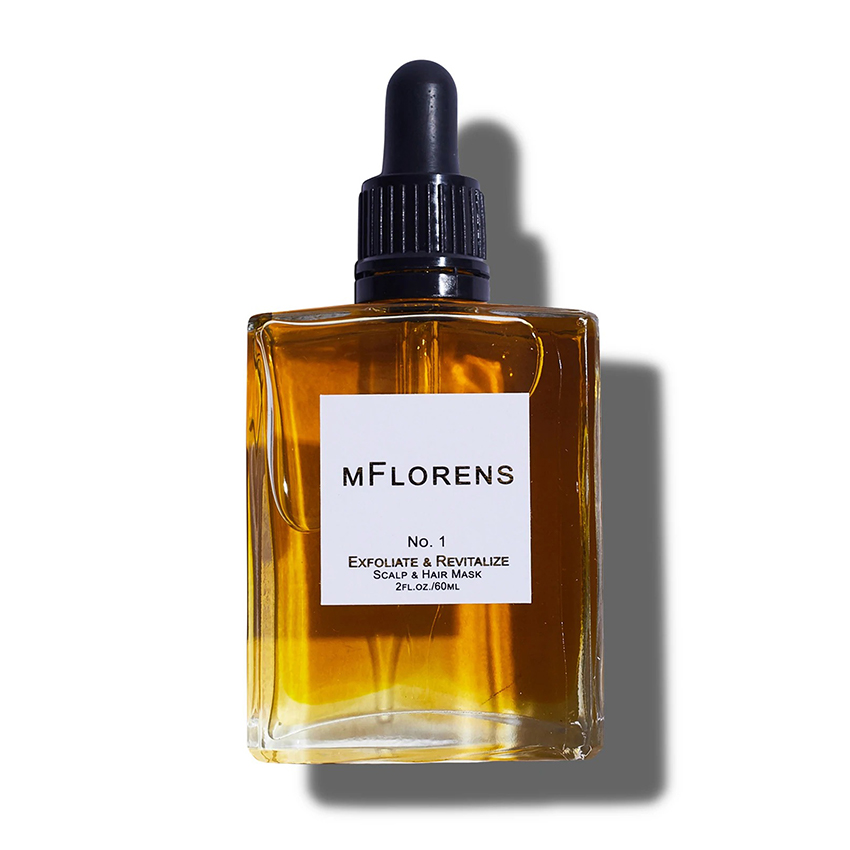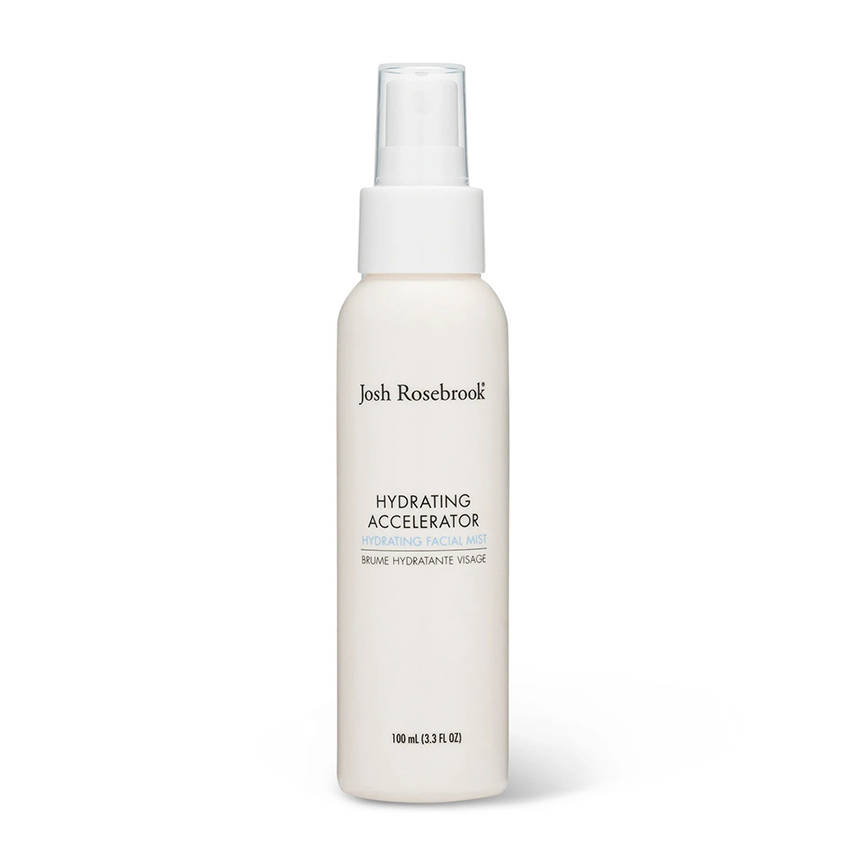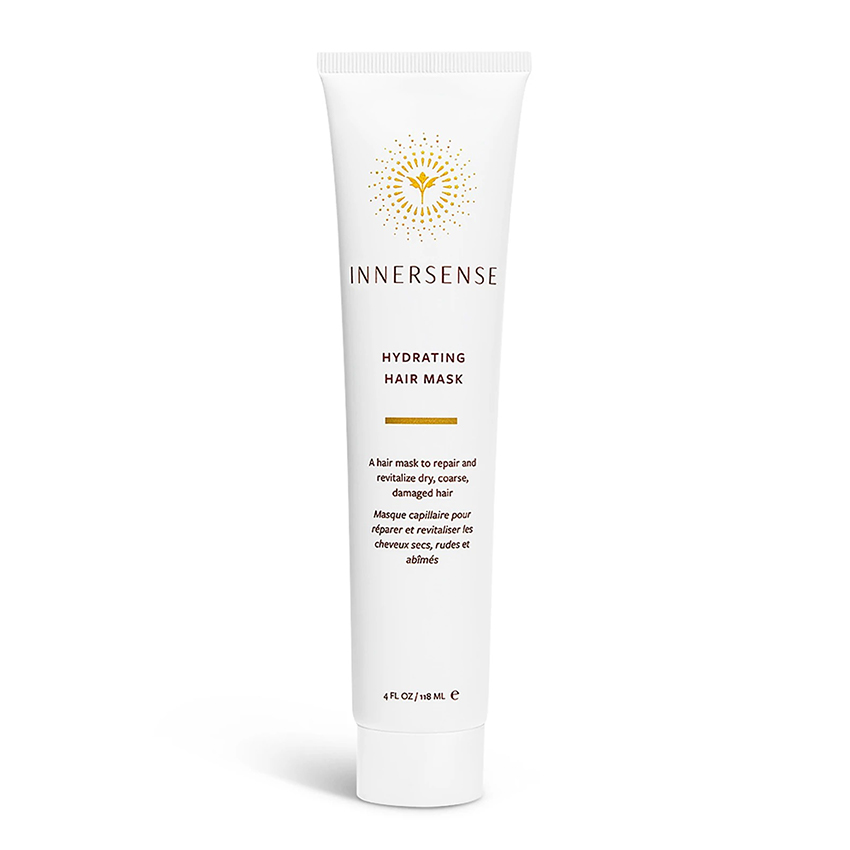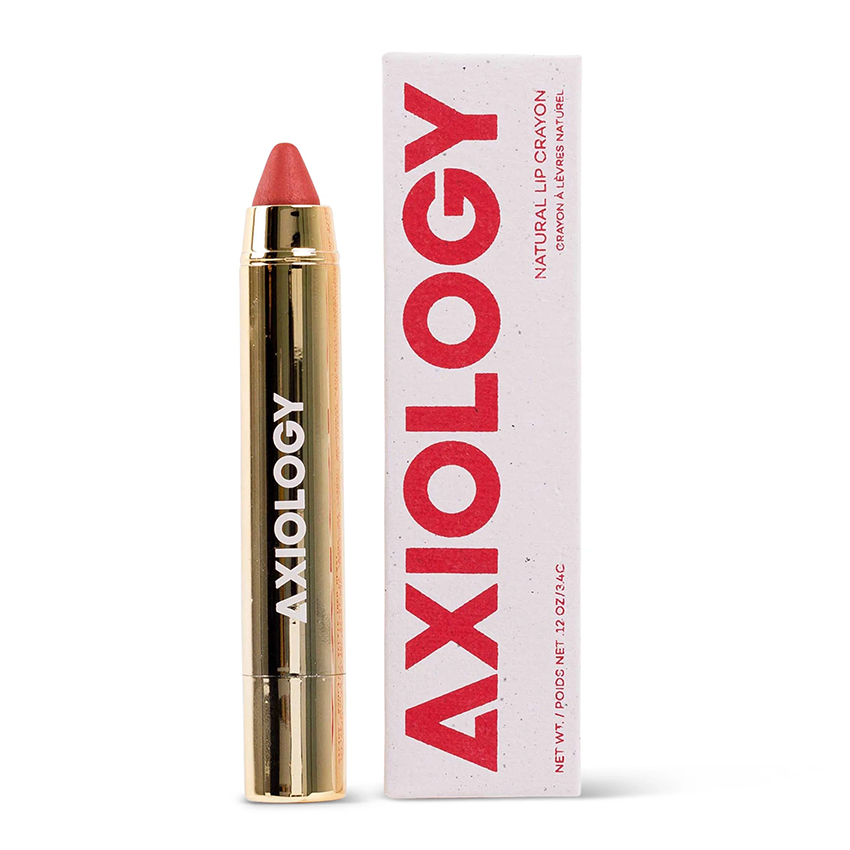How Jazmin Alvarez Is Paving the Way for a New Kind of Clean Beauty

With a firm handshake, say hello to Business of Beauty—an exclusive, inside look at each of the incomparable journeys of entrepreneurs of color in the beauty industry. This series is anything but business as usual. It's a raw, honest look at the unique and often overlooked challenges that people of color face when starting their own beauty brand. Each founder will reveal the biggest hurdles they’ve overcome, their internal struggles, and their deepest thoughts about what needs to change in the beauty industry (and the world, really) to make it a more inclusive space for everyone.
This time around, we're getting to know Pretty Well Beauty founder, Jazmin Alvarez. As a 14-year veteran in the fashion and beauty industry, Alvarez wanted to create an inclusive and approachable space to buy clean beauty products. Not just ones that speak to a narrow hair or skin type. We talked about everything from toxic product marketing to the unexpected way she cleared up her skin. Read all about her journey below.
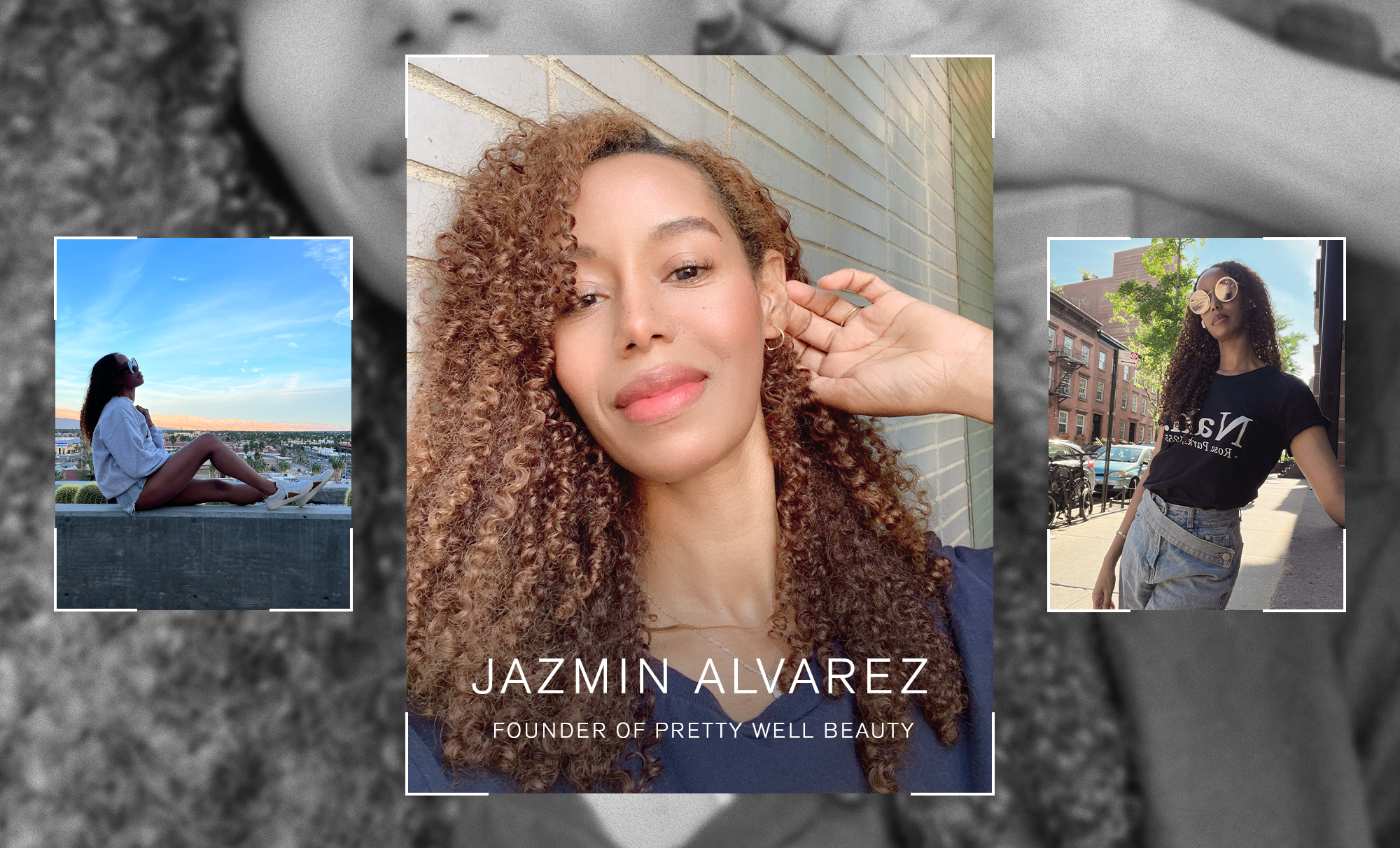
Jazmin Alvarez started Pretty Well Beauty because, like many other women of color, she never felt like she was part of the conversation—especially when it came to buying clean beauty products. Before deciding to take the leap and create her own business, her path took her everywhere from Calvin Klein, Ralph Lauren, and Condé Nast to casting Fenty Beauty's first digital launch in 2017 with a focus on diversity and inclusion.
Needless to say, she's just the woman for the job to democratize the clean beauty space. Having experienced firsthand the struggles of the modern consumer, she aims to curate a set of product offerings that take the confusion out of shopping. With an impressive zero percent return rate, I'd say she's on to something big. Below, you'll find my conversation with Alvarez revealing her unique approach to beauty, her biggest challenges when starting her business, and how she wants to see the industry change.
To kick things off, I would first love to start by talking about Pretty Well and its mission. For those who may not be familiar with the brand yet, what can you tell us about your ethos?
Pretty Well Beauty was really built on establishing a higher standard of "clean" and "transparency" while also fostering an authentic feeling of inclusivity and diversity. When I was just a shopper, I didn't see that reflected. As a person of color, that was something that was very important to me—especially because I was very interested in finding clean beauty solutions for myself. And I was struggling. So I knew that if I was struggling, then other people had to be struggling as well.
I went through the same thing. I struggle with hyperpigmentation and sometimes the ingredients used in skincare that are marketed toward people of color are not even safe. That was pretty eye-opening for me when I learned that because I started to think the products I was using to treat dark spots may not even be good for my skin.
You're completely right! That's exactly what happens. In fact, the products that are marketed toward women of color have nine times more parabens and toxic chemicals in them than products that are marketed to non people of color. I sort of leaned into [using cleaner products] as I got a little bit older, but it was something that I've been doing since I was a kid. It's how my mother raised me. She always used natural stuff. Even stuff she would give me as medicine—it wasn't traditional medicine, it would be stuff from the kitchen, you know?
Before deciding to work in the clean beauty space, you worked heavily within the fashion and beauty industry for 14 years and accomplished so much. How did these experiences pave the way for you to create Pretty Well Beauty?
It actually goes back even further than my career. My mother and my grandfather were both hair entrepreneurs, so I've been around beauty literally my entire life. I like to say it's in my DNA. I started my career in fashion as a model agent. But I kind of got burned out after about three years of being agent, so I started working in casting and because I was working with all of the casting directors already from being a model agent, I just reached out to the ones that I was most friendly with and asked if I could assist them. Then, that sort of segued into production, which kind of fell into my lap, to be honest. From the very beginning [of being in production], I was working with Steven Meisel, Pat McGrath, and all the most important people in the fashion industry. I was working on very large productions for Vogue, Balenciaga, and Prada.
I learned from the best producers in the business which catapulted me to be able to become an editor at Condé Nast, then I worked at Calvin Klein, and was a producer at Ralph Lauren. That was my last job before launching my company back in 2019. Fashion and beauty are so closely related. I always love being on set—I loved the clothes and I loved seeing the whole creative process, but I was always way more interested in the beauty side of things. You would always find me with the hair and makeup teams. I would always be so fascinated with like all the products. When I was at Conde Nast, I was always in the beauty closet taking stuff. I'm the true epitome of a beauty junkie. It doesn't matter how much I have, I still want more [laughs].
I feel like any beauty editor could relate to that! You can always have more.
Exactly! I was also being exposed to all these products from emerging brands, very established brands, and luxury prestige brands. Those were the ones that I would gravitate towards because of all of their amazing claims and what they would do. But I couldn't really understand why my skin wasn't really looking the way that I wanted it to look. I was still having breakouts, uneven texture, and things like that. What really changed things was actually an article I read in Allure. Long story short, I didn't wash my face with any products. For a month, I only used water. And what happened was my skin started to balance out—I didn't break out once and I have oily skin.
It literally changed everything for me because it made me understand that all these products that I had been using were actually the catalyst for why I didn't have the kind of skin that I wanted. I really needed to scale back. But unfortunately, that wasn't sustainable. I couldn't not wash my face because I ended up getting some congestion beneath the surface. I didn't want to go back to using all that other stuff so I started seeking out products that had ingredients that were more gentle—things that I could pronounce and that I felt more familiar with, instead of just going back to what I was doing before. So I started really slowly. That's when my relationship towards how I take care of my skin really, really changed.
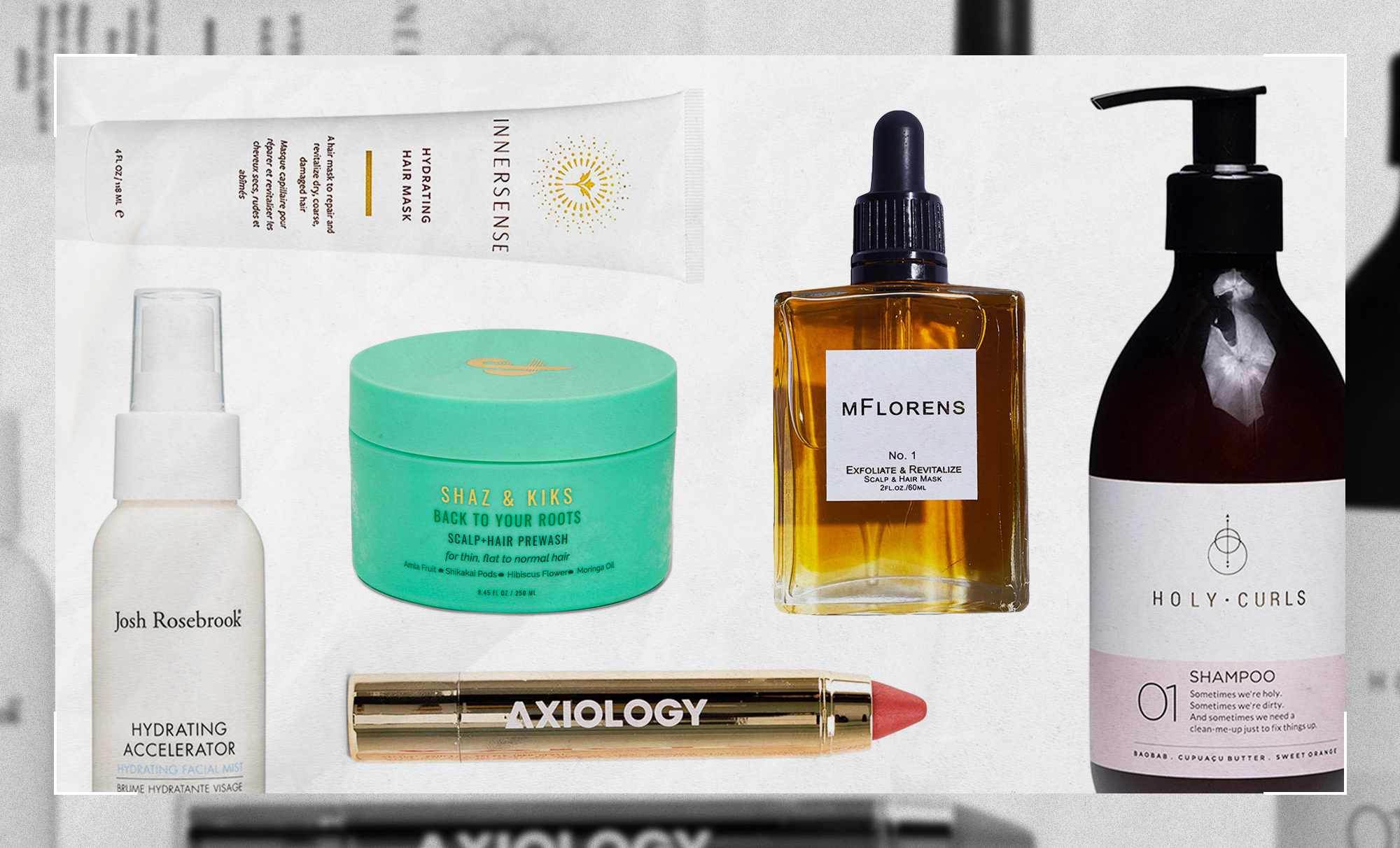
Wow, maybe I need to do that! I've definitely been wanting to keep things a lot simpler, too.
Yes! And this was like 10 years ago before clean beauty was even a thing. No one was talking about natural beauty in the way that they are now. I just slowly over time replaced everything that I had been using through a lot of trial and error. I'm such a geek, too. I read labels on everything. I've done this since I was a kid. So I did that same thing with the products that I was purchasing. And through this process, it really sparked in me this passion of wanting to do better for myself—I still wasn't thinking about a business yet. That didn't really happen until the first clean beauty shop opened in New York, I think it was in 2016, and I had a really unpleasant experience there, to say the least. I won't go into too many details, but that was what planted the seed. I was like, "This is BS. I can do exactly this, but I can do it in a way that's much better."
I wanted to do it in a way that was more welcoming, friendly, authentic, and transparent. I didn't do anything yet. It still took me a few years before I really got to that aha moment. That process actually happened by starting an Instagram account for Pretty Well Beauty. When I started the Instagram account, I still wasn't intending for it to be a business. I was really intending for it to be a place for me to talk about clean beauty from my perspective and to talk about the brands that I felt were really getting it right, and going above and beyond. They were the brands that I trusted and had seen positive results from. Through that exercise of building an audience, that's what made me realize I needed to make it a business. So that's what I did later in that same year.
I really love that Pretty Well also aims to democratize beauty. There are so many cool new clean beauty brands popping up that actually cater to the specific needs of people of color and ones that just feel more authentic in their approach. What is the most important thing that you want consumers to take away from Pretty Well Beauty?
I want people to know that Pretty Well Beauty isn't like any other retail establishment in the sense that you have no idea who's behind it. That's why I make sure that I'm very front and center on my Facebook page and website because I want people to feel like they're shopping with a friend and not just going to some digital mall where they have to self-navigate. I make myself very accessible to people. In fact, I've actually made friends with a lot of my customers at this point! I really want it to be a place where they're not going to be overwhelmed with too many options. Because, what happens when you have hundreds and hundreds of brands, is a lot of the time you get overloaded and end up not making a decision. If something's on Pretty Well Beauty's site, it's because it's unique, special, and it delivers in performance.
I want people to know that when you make that investment in yourself and in Pretty Well Beauty, it's something that you're going to receive a positive return on. It's because of all the time that I've spent talking to these founders and getting under the hood of just how their entire process works. The way that I vet brands is just a little bit different and I think that's why we have like a 0% return rate, which is amazing. it's kind of unheard of in retail and it's because I want to make sure that anything that goes on there really does deliver on what their promises that they make. I created Pretty Well Beauty not just for me, but for everyone. This is my contribution to try and make things a little bit easier and better for people. I want people to feel like they can be seen, heard, understood, and that their needs are being met. They truly are an extension of this brand when they shop here.
Yeah, and I think that's so important. We're really moving into an era of conscious consumerism. These larger brands who may leave certain people out of the conversation just aren't really resonating with people as much as they used to. I think people are looking for a space like Pretty Well where they can get a curated set of products that feels like it's coming from a real person, and their needs are actually being met.
Right, and I feel like I'm a good person to be able to speak to this type of consumer because I am this person. I've been in the same position. Beauty is a very personal thing. It's very tactile and it has an emotional element to it. When you remove the human element from that equation, it's very difficult to connect with people and keep customers in that way. I take feedback and try to incorporate it as much as I can. During the height of the Black Lives Matter movement, we saw a lot of performative initiation taking place. I think that this consumer is very aware of that. They can see that [some brands] didn't have a BIPOC section before, but now they do. I can kind of see both sides of the coin. Now you're giving a platform to these brands, which is great, but why didn't you do that before if that was something that was actually important to you, considering the fact that Black women spend more on beauty than any other demographic combined? Now all of a sudden you want to celebrate them? It just feels a little icky to me.
I totally agree. I feel like that's a good segway into my next question. As a woman of color, what do you think were some unique challenges you faced when launching Pretty Well Beauty?
One of the biggest challenges was access to information, resources, and support that my nonpeople of color cohorts may have already had just because of their socioeconomic status, where they went to school, or the circles that they're in. Unfortunately, a lot of people of color don't have the opportunity to be exposed to some of these people who can support them. [White people] talk about things like a friends-and-family round of fundraising, but the average household income for people of color is significantly less than white people. We don't have friends and family that we can go and get big checks from that help fund our companies at a seed stage.
We have to bootstrap for a lot longer than a lot of our non-BIPOC colleagues or cohorts. There's also an unconscious bias that happens and assumptions that are made before you even speak. I've noticed that it's just a lot easier to navigate this entrepreneurial landscape when you're a white man. Because for some reason, there's a perception that they have more knowledge and experience to be successful, when the data actually shows differently. We've seen the data across the board that show that women actually run businesses much more efficiently and grow faster than white male businesses do. I'm still bootstrapping. I'm self-funded and am trying to grow organically as much as I can. It's definitely hard—especially because I see people who've started out around the same time as me who are non-people of color, and they have raised money, have built teams, and have even gotten these incredible partnerships with other well-established brands. I don't know how to get into that. I don't have those connections or those relationships so I just have to make do with what resources and information that I have as best as I can. It might take me a little bit longer, but that's okay.
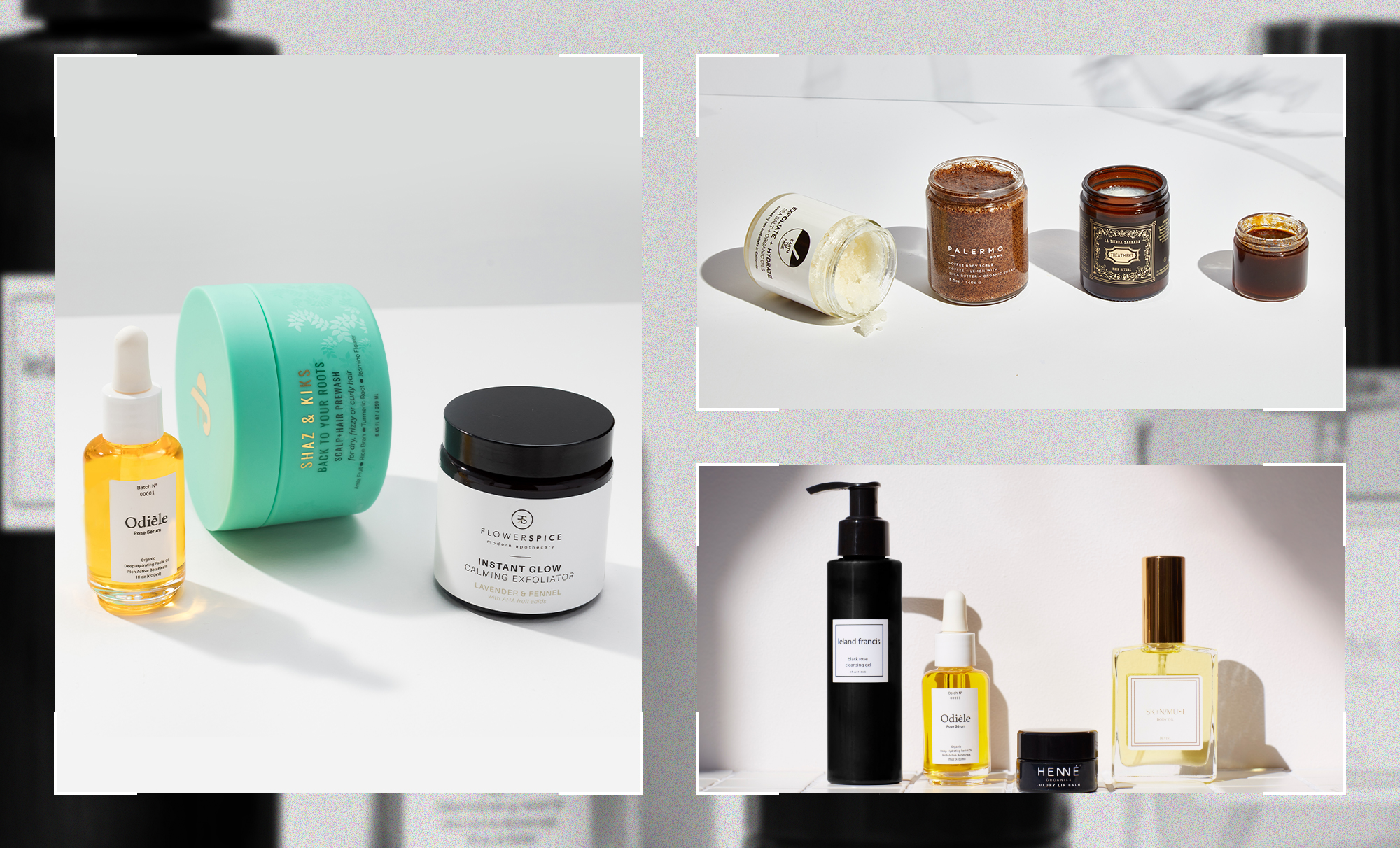
Totally! And I don't know about you, but sometimes I find it a little disappointing when certain companies are now out of nowhere adding people of color to the conversation in their business. I just question whether they actually care about the needs of people of color and if it's genuine or not. Are they actually finding ingredients that work well for our skin or are they just doing it because it's "popular" to do so at the moment?
Yeah, that's something that I often question too when I see that happening or when you'll see them create an extension of their existing offering to be more inclusive. It feels very much like an afterthought, right? That's not a great feeling for anybody—regardless of your background. And that's how we're feeling. That's the perception that's coming off to some people. It could actually be hurtful in the long run.
Exactly! Do you think that we've made real progress in regard to diversity and representation in the beauty industry?
We definitely have, but there's still a lot more work to be done. It has definitely become much more inclusive in the last few years than it has ever been. But the progress has been slow. I'd love to see it grow a bit more. I think it will. I don't think we're going to go back to how it was before. I think it will as long as we're continuing to have these conversations, we make space, create opportunities, and are doing it from a place that's genuine and not because you're trying to check off a DI (diversity and inclusion) commitment, or you're trying to appear to be inclusive in the eyes of your consumer. I think that if companies who are just starting out don't have some sort of DI component to their business as one of their pillars, I wish them well [laughs]. I think that the minority groups are growing very, very fast. The world is shifting and the world is changing. If you're not aware of that, are sticking to a narrow-minded point of view, and aren't taking the world as a whole into consideration, I think you're going to be left behind.
What does a truly inclusive and diverse beauty space look like to you?
Well, there wouldn't be any brands coming out with foundation shade ranges with less than 40 shades because Rihanna already did it. That's the benchmark now! If you're coming out with a shade range that goes from fair to medium just stop. Don't do it. You're just setting yourself up to get dragged. I would love to see more shade ranges not just for foundation, but just seeing [more] pigmentation for different makeup as well. That could be more inclusive and versatile as well. Same thing with hair. There are not enough options in the clean hair space. Particularly, clean products for textured hair that are also performance-driven.
That's actually something that I want to solve myself. I have an idea so I'll put that on the back burner for now! It's sort of an homage to my roots and how I grew up. My mother always said that as long as your hair is healthy, it's going to look great. It's basically going to be built around everything my mom told me that I ignored for a long time until I became an adult.
Your curls are amazing! Do you have any curl care secret weapons you can share with us?
I'm very religious about my hair. I wash it once a week, Sunday is my wash day. I never skip deep conditioning. That is definitely the key to bouncy curls and extra moisture—hydration, hydration, hydration. Then just applying your products in the correct order. Make sure you do it in sections and that your hair is soaking wet when you apply products. Then I let my hair air-dry once I have all my products in and I don't touch it until it's dry. That's it. I don't do anything else with it for the rest of the week. It just does what it wants to do.
Lastly, is there anything else in the works at Pretty Well Beauty that you can tell us about?
We're actually launching an app! It will be a good mixture of shopping and content there. It'll be available in the Apple Store, as well as Android and Google Play. I'm also dropping a collection of beauty-inspired NFTs (non-fungible tokens) as well. I really want to bridge that gap between women in tech and cryptocurrency. There's just not enough of us in that space yet. I want to use beauty as a means to be able to open up that dialogue and conversation with women. The utility behind it will be very beauty-focused, but there's also education attached to it as well. There's a giveback component too. We're partnering with an organization that supports women, children, and their health and hygiene needs. So, yeah, there's a lot happening this summer!
Shop Jazmin Alvarez's Pretty Well Beauty Picks
Up Next: Sharon Chuter on Celebrating Her Heritage and the Future of Uoma Beauty
Shawna Hudson is a beauty, wellness, lifestyle, and travel writer with over 10 years of experience. She graduated from California State University, Fullerton, with a degree in journalism and has written for other publications such as Bustle, The Zoe Report, Byrdie, Elite Daily, and more. She is currently a beauty writer at Who What Wear and hopes to continue feeding her (completely out-of-control) beauty obsession as long as she can. Stay up to date on her latest finds on Instagram @shawnasimonee.
